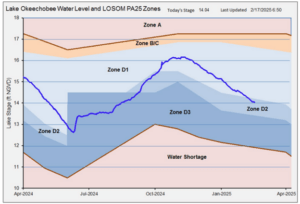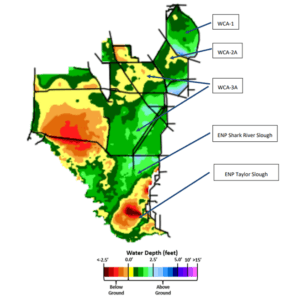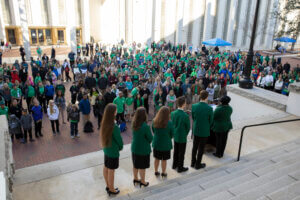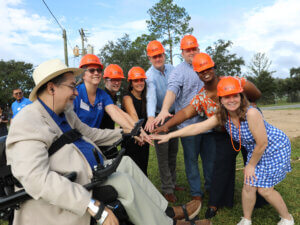 Florida Farm Bureau Federation’s Federal Political Action Committee (FedPAC) announced its endorsement of Senator Ashley Moody in her campaign to return to the U.S. Senate. Through the years, FedPAC has supported its agricultural champions in the halls of Congress and has helped to elect and support leaders who prioritize Florida’s farmers and ranchers — fighting for private property rights, fair trade and labor reform, and pushing back against unnecessary regulatory burdens that hinder agricultural producers.
Florida Farm Bureau Federation’s Federal Political Action Committee (FedPAC) announced its endorsement of Senator Ashley Moody in her campaign to return to the U.S. Senate. Through the years, FedPAC has supported its agricultural champions in the halls of Congress and has helped to elect and support leaders who prioritize Florida’s farmers and ranchers — fighting for private property rights, fair trade and labor reform, and pushing back against unnecessary regulatory burdens that hinder agricultural producers.
Senator Ashley Moody said, “Our state’s agriculture industry is the backbone of this great country, and it is about time the federal government started helping our farmers, instead of harming them through overregulation.
As the Sunshine State’s newest U.S. Senator, supporting policies that allow the Free State of Florida’s farmers and economy to thrive is of critical importance. Food security is national security, and the work of this industry ensures a stronger, safer nation for generations to come. I am proud to be a partner to the Florida Farm Bureau and thank FedPAC for their endorsement as I work every day to return to the U.S. Senate.”
President Jeb S. Smith said, “Florida Farm Bureau Federation’s Federal Political Action Committee (FedPAC) proudly endorses U.S. Senator Ashley Moody for her strong and effective leadership on behalf of Florida agriculture. This year, Senator Moody has been a tireless champion for our citrus growers — introducing the Defending Domestic Orange Juice Production Act and successfully pressing for federal action to modernize regulatory standards that have hampered Florida’s iconic citrus industry. Her commitment to cutting needless red tape, strengthening domestic competitiveness, and standing with producers through ongoing challenges like greening and extreme weather reflects her deep understanding of agriculture’s role in Florida’s economy. We are proud to support a proven advocate for our farmers, ranchers, and rural communities.”
In July, Senator Moody earned the “complete and total endorsement” from President Donald J. Trump. Additionally, earlier this year, she announced the endorsement of 64 sheriffs and all 15 Republican State Attorneys throughout Florida. See more HERE.
About Ashley Moody
Ashley Moody is a fifth-generation Floridian raised in Plant City, Florida, known as the Winter Strawberry Capital of the World. She is a three-time graduate of the University of Florida where she earned her bachelor’s, master’s and law degrees. She also earned her Master of Laws from Stetson University.
Raised in a family dedicated to serving others, Ashley was inspired to pursue a career in justice and public service. She began her career at the law firm Holland & Knight, where she specialized in commercial litigation. Later, Ashley became a federal prosecutor in Jacksonville and Tampa, where she prosecuted cases involving drug trafficking, firearms, and fraud offenses.
In 2006, Ashley made history as the youngest judge in Florida when she was elected to serve on the Thirteenth Judicial Circuit Court in Hillsborough County at just 31 years old.
After serving as a judge for over a decade, Ashley was elected as Florida’s 38th Attorney General and quickly earned national recognition for her leadership as she championed policies to enhance public safety, strengthen law enforcement, and crack down on violent crime. Throughout her tenure as Attorney General, Ashley earned a reputation as a fierce leader in the fight against unelected bureaucrats in Washington who sought to undermine Florida’s policies. She has also been a national leader in protecting religious freedom and the sanctity of life.
During President Donald Trump’s first administration, Ashley was appointed to serve as the only Attorney General in the country as a Commissioner on the Presidential Commission on Law Enforcement and the Administration of Justice. On January 21, 2025, Ashley was sworn into the U.S. Senate after being appointed by Governor Ron DeSantis. As U.S. Senator, Ashley continues her mission to uphold conservative values, strengthen national security, and fight for Floridians. She is a key supporter of President Trump’s agenda and remains dedicated to America First policies that promote law and order, economic prosperity, and American sovereignty.
Ashley and her husband, Justin, a career law enforcement officer, have two sons, Brandon and Connor.

 The election of pork producer delegate candidates for the 2026 National Pork Producers (Pork Act) Delegate Body will take place at 10:00 a.m. on Thursday, July 24, 2025, in conjunction with a Board of Directors meeting of the Florida Pork Improvement Group at the Florida FFA Association office, 5600 SW 34th St., Gainesville, FL 32608. All Florida pork producers are invited to attend.
The election of pork producer delegate candidates for the 2026 National Pork Producers (Pork Act) Delegate Body will take place at 10:00 a.m. on Thursday, July 24, 2025, in conjunction with a Board of Directors meeting of the Florida Pork Improvement Group at the Florida FFA Association office, 5600 SW 34th St., Gainesville, FL 32608. All Florida pork producers are invited to attend.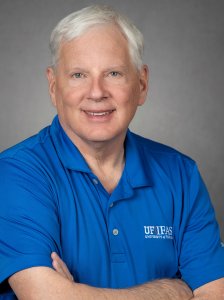 By J. Scott Angle
By J. Scott Angle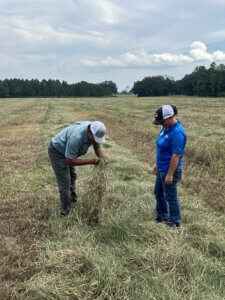 In the ongoing trial of controlled release fertilizer on hay at Lane’s farm, so far the costs aren’t worth it. Lane suspected as much beforehand. A season’s worth of data reaffirmed that. But it also set the stage for trying a lower-cost fertilizer to see if scientist and farmer can make it pencil out at harvest time.
In the ongoing trial of controlled release fertilizer on hay at Lane’s farm, so far the costs aren’t worth it. Lane suspected as much beforehand. A season’s worth of data reaffirmed that. But it also set the stage for trying a lower-cost fertilizer to see if scientist and farmer can make it pencil out at harvest time.
